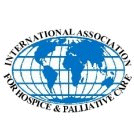|
Learning from Students in the Health Sciences
With this issue of the Newsletter we introduce a new section devoted to contributions by students who are learning about the care of the dying during their training or as a result of a hospice/palliative care rotation. We welcome reports and essays from students in all the health sciences.
Send them in a Word format of about 500 words to: editor@hospicecare.com
The Skill of Holding Hands
By
Brandon Conrad

Living through the many hardships of illness, disabling injuries and deaths in my family during my childhood taught me the skill of holding hands and the value of gently timed humor. Some would say those were unfortunate lessons, but only so if they remained unapplied and without a purpose except to remind me of my own state of incompletion. On the contrary, it has served me well over time, from the death of my grandparents to the grief of friends during the losses they experienced in their own lives. I wonder if my own disconnection and untreated wounds have become bridges of familiarity to the needs of others.
And so, with very little idea of what I could contribute, I accompanied Mr. H’s home health nurse on our first visit together. The dogs were loud, and I hadn’t expected him to appear as healthy as he did. He was only 61, and had worked earlier in the year. A diagnosis of brain cancer followed from the symptoms of a persistent headache and unsteadiness which quickly led to surgery, chemotherapy and radiation. I sat next to his bed in the living room more encumbered, than enabled, by the medical training I had received thus far. And so, I turned to discussing the matters of the world around us. We talked and laughed about life, memories, and anything that either of us cared to share. And with very little thought, or effort, formality was lost and we unexpectedly became friends.
Near the end of the month, he had a painful confrontation with his medical reality and the direction that things were heading. His blood pressure rose dangerously high, and remained elevated despite multiple medicinal attempts to lower it. The social worker was called to coordinate a possible admission to the hospice floor to stabilize him, as well as to provide his wife respite from her care giving duties. Though he was only partially receptive, he remained mostly silent. As we gathered in the kitchen to think of better ways to phrase the bitter news for him, the social worker said he wanted to see me again. I went back to talk with him, to encourage him in any way that might help. Instead, I sat there on my familiar chair, one man handing another tissues for his quiet tears of anger, fear and sorrow. It was a moment to share the indignity of the situation, but also a moment to hold him in the same regard as always, despite it all.
This touching moment lingers because of the trust he placed in me, the vulnerability shown, and for the unspoken challenge presented to me to honor that. As my friends have heard me mention before, I feel there is a drive within the human heart to connect to another person who will receive us, who will truly communicate and care about our thoughts, feelings, and hopes. “Know me,” is what I heard from him that day, and each visit that followed - I think I am achieving that. It takes far more than academics to accomplish such a very personal relationship, and I hope that I am closer to his expectation. During his remaining time, I want to keep his friendship close, guard it from the pressures of my rotations and duties, and give it the place it deserves. I was reminded once again from this experience that despite the long often uncertain process of dying there is still a great deal of living to be done.
Brandon Conrad is a third year medical student in the University of Kentucky, College of Medicine. He wrote this essay following a rotation on a hospice/palliative care service.
Top of Page
|




